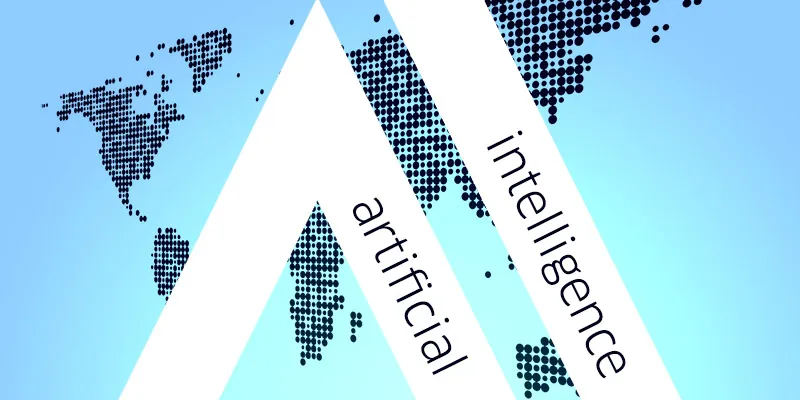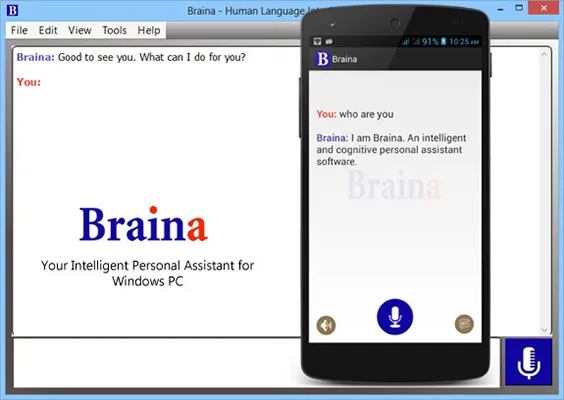‘Gone are the days of mouse and keyboard, AI is the next big thing.’ – Akash Shastri, Brainasoft
Early last year when Facebook CEO Mark Zuckerberg declared the developing of artificial intelligence (AI) as one of his top three key goals for the next ten years, the trend started to pick up. Over the past one and a half years, artificial intelligence startups seem to have come back with a bang.
A market research report by Research and Markets in 2013 valued the global market for AI at close to $900 million. Closer home, the Chennai-based AI startup Mad Street Den, raised Rs 9 crore in funding early this year. Other than startups, there are several global players venturing into AI.

For instance, there is Google Now, which answers questions via a natural language user interface. It also makes recommendations and performs actions that delegate requests to a set of web services. Others like Watson by IBM, Cortana by Microsoft, and Echo by Amazon are also employing AI features. With both startups and established names entering into the AI space, we can assume that this segment is hot in the market today.
Entering into this trendy fray is Brainasoft, an AI startup focusing on natural language processing, machine learning, and human-computer interface. Their flagship product Braina Virtual Assistant was selected by the TechRadar as one of the top 10 best software this year. The team is currently focusing on making the product a single window environment that controls and commands your computer with speech recognition.
Gone are the days of mouse and keyboards, AI is the next big thing! Every person using a computer or smart phone is a potential Braina user. Braina can not only make human-computer interaction easier but also an exciting experience,
says Akash Shastri, Founder, Brainasoft.
Braina Virtual Assistant is an intelligent personal assistant for the Windows PC. It allows you to interact with your computer using voice commands in English. Akashsays that Braina is not an average Siri or Cortana for the PC, nor is it a chat-bot: "Its priority is to be super functional and to help you in doing tasks. You can either type commands or speak to it, and Braina will understand what you want to do. Moreover, using Braina’s built-in speech recognition for Android apps you can interact with your computer from anywhere in your house over a WiFi network."
Background and journey
We all have our childhood fantasies. And Akash’s was a talking computer: “I just thought it would be great if my computer could talk to me like another person.” Like any other youngster, Akash was enthralled by science fiction movies like Terminator; which in turn fueled his passion and curiosity for robots. So he decided to create his fantasy software. . Within the next five months Akash created a basic prototype of Braina for Windows OS using C language.
“I knew that Braina had great potential but I was not able to develop it further because of my studies,” says Akash. Though he was a topper in his university, Rollwala Computer Centre in Gujarat, Akash decided to drop out. “I decided to follow my dream. I began work on the Braina project and today I can without any doubt say that it is the world’s best intelligent personal assistant for a Windows PC,” adds a confident Akash.
Till early this year, Brainasoft was a one-man organisation, but with the increasing user base, Akash decided to expand his team. Today Brainasoft is a team of four.

Way forward
With both big and small players entering the field, how will Braina set itself apart? Akash says that they are into developing a real artificial intelligence system, unlike others who are focusing on creating products or services that use AI techniques: "Our goal is to make Braina as intelligent as a human brain."
For the future versions of Braina, the team wants the product to be truly intelligent, by not only answering questions that are asked but also answering questions one should have asked. The team intends Braina to represent the future of human-machine interaction.
Presently, Brainasoft has been focused on research in the fields of natural language processing and machine learning. In the latest version of Braina, launching next month, the product will be able to understand meanings of English language sentences; and respond to user queries by recalling what it had learned before.
“AI is my passion. Brainasoft's goal is to create a generally strong-AI, like the ones in sci-fi movies such as Terminator, Her, Transcendence, Chappie and Ex Machina. We are also planning to develop an artificially intelligent operating system. Another far-sighted plan is to integrate this operating system with a life-size humanoid robot,” concludes Akash.







